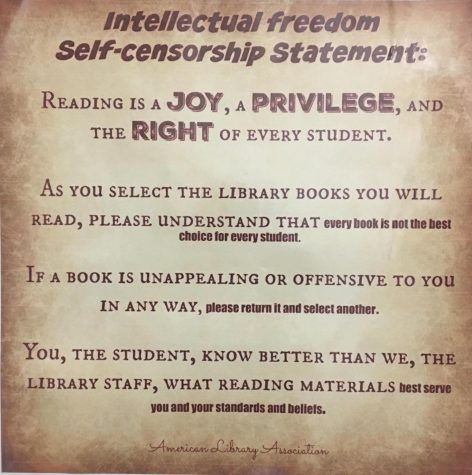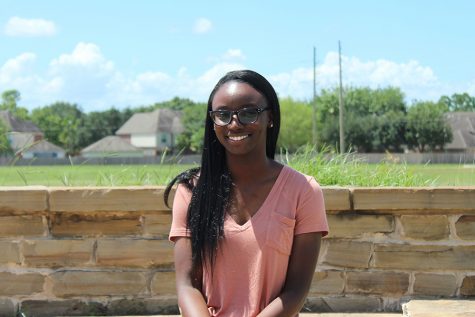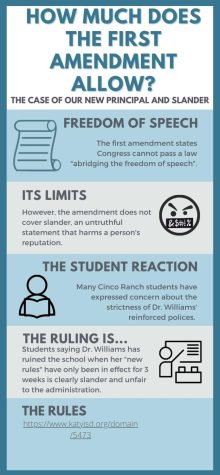Superintendent’s decision to pull “The Hate U Give” from shelves is about more than just language–it’s about the message.

As 2017 winds down, it was to my shock and surprise to learn that our district is gaining national attention over the Superintendent, Dr. Lance Hindt’s, district-wide decision to pull Angie Thomas’ critically-acclaimed YA fiction novel The Hate U Give from library shelves.
The decision was made based on the concern of a parent of a Memorial Parkway Junior High student who made public complaints the school board about the novel’s “pervasive language,” stating he was “appalled” based on the content he gathered from skimming just 13 pages out the 464-page work.
Superintendent Hindt also commented in defense of pulling the book, citing that the book featured “racially insensitive language” such as racial slurs and phrases.
While the district claims that pulling books off shelves is a standard process, I find the fact that the book was pulled without the district-mandated formal review concerning.
Throughout my high school years, I have read books covering a multitude of genres, subjects, themes and topics, such as The Adventures of Huckleberry Finn, To Kill A Mockingbird and The Handmaid’s Tale. Some topics and themes, of course, raise eyebrows or generate some gasps because of their rather questionable content. Topics ranging from drug use, sex and racial issues have been written about in books for decades; those are the books that have influenced not just the way English literature is taught, but also the composition of our current society.
Just as The Hate U Give features profane language and graphic descriptions, classics like The Adventures of Huckleberry Finn and Their Eyes Were Watching God include just as much if not more sprinklings of strong language and racial slurs. These are books that are not only part of the high school English curriculum canon, but also happen to be sitting on Katy ISD library shelves at this very moment. And while the book uses what Dr. Hindt believes is “racially insensitive language,” the author is only using those terms and phrases to draw realism to the nature of that language and its presence in African-American culture, especially among young black teens.
Though many schools districts have banned books based on language and content considered too mature for the students, the particular pulling of this newly-published work and not countless other books in school libraries with the same kind of language baffles me, especially taking into consideration that, unlike most other controversial books, this book is centered on an American teen grappling with police brutality and the Black Lives Matter Movement. This raises the question of the real reason behind the book being pulled from school library shelves, instead of just the claim that the book is too mature for curious, growing young adults to read. Even more so, the novel follows the life of a protagonist named Starr Carter, a 16-year-old girl growing up in the midst of two different worlds: her poor, predominantly black neighborhood of Garden Heights and Williamson Prep, the wealthy, suburban school she and her brothers attend.
Are American teens too young to read about content that fully involves their lives? Should the stories of adolescents like Starr Carter be silenced because their own reality is too “appalling” for people her age to know and even learn from?
In the wake of increased attacks on people of color by police officers as well as the mobilization of the Black Lives Matter Movement in the current political climate, pulling books like Thomas’ insightful and gripping tale on these subjects only tells students that reading books like these are far removed from their reality, when it really isn’t.
Though Katy seems like a pretty safe suburb to grow up and live in, there are still kids living here that wouldn’t say they feel safe when going out into the real world due to the color of their skin. There are kids, like Starr, who have seen someone die at the hands of a police officer, whether it was their friend, family member, or a kid on TV that looks just like them.
Despite their controversy, books that have been infamously banned often serve a powerful message that goes far beyond its stark and explicit language. The Hate U Give offers a realistic and immersive glimpse into the life of a teen trying to understand and make the most of her reality, which is one that millions of kids across this nation face every single day. The language in the book not only helps make Starr’s world more realistic, but it also adds potency to the powerful message that Angie Thomas is only trying to tell.
The pulling of the book based simply on bad words was at best a narrow-minded and myopic decision, and only deflects the overall importance of Thomas’ creative work and how it impacts and empowers teens all over the country and even the world.
In today’s increasingly technological world, the search engine is at almost every teens’ fingertips; students that want to read the book can simply and easily turn to the Internet where they can purchase an eBook or hardcover off of sites such as Amazon. This matter of fact only emphasizes how counterproductive and futile the decision to pull the book is; it is not going to stop students from obtaining the book. Rather, it would likely encourage them (multiple libraries such as the Maud Smith Marks branch in Katy currently have waiting lists to check out the book). If parents ever feel concerned about the books their child is reading, they should be highly encouraged to read the book with their teens and discuss the language and its context in the book. It’s not simply the school district’s responsibility alone to help young people make sense of the complex and dangerous world we currently navigate.
More importantly, instead of removing the ability for tens of thousands of students to read a book, a more effective way of protesting something you don’t like is to simply put it down and never pick it up again.

Angelica Arinze is a senior and Features Editor this year for the County Line. Between indulging in seemingly endless cups of frozen yogurt or complaining...

![Tips for Studying Finals [INFOGRAPHIC]](https://crhscountyline.com/wp-content/uploads/2022/12/Studying-for-Finals-475x267.jpg)



Kathy Pham • Dec 15, 2017 at 11:25 pm
Angelica,
This is a well written, insightful, and powerful argument against censorship.
Good job.
Sonya • Dec 14, 2017 at 2:45 pm
Bravo! Well stated!
Roba Abousaway • Dec 14, 2017 at 1:59 pm
Angelica, I am so proud of you for being a voice for so many others who feel silenced right now. You are a powerful force for change in a world that desperately needs one. You rock! Keep covering the hard stuff!
Billy • Dec 14, 2017 at 12:37 am
Your words are very profound and thought provoking. I too believe this book should available to students. It begs the question, if one parent can get the book pulled, how many parents would it take to reverse this situation?
Michelle Phelps • Dec 13, 2017 at 5:36 pm
Great perspective! Well done.
Michael A. • Dec 13, 2017 at 4:25 pm
Well said! Thank you for sharing this.
Dr. Jessica M. Lilly Hughes • Dec 13, 2017 at 2:49 pm
Brava! Please continue your coverage. Dr. Hindt is going to rewrite Policy to limit more books from remaining or being purchased in libraries that HE finds offensive.
Emily • Dec 13, 2017 at 10:30 am
I am SO proud of the student activism being practiced here and the thought-out, well-written response to censorship.
Thank you for your voice, Angelica!!
Mr. Heller • Dec 13, 2017 at 10:05 am
Wonderfully well written!